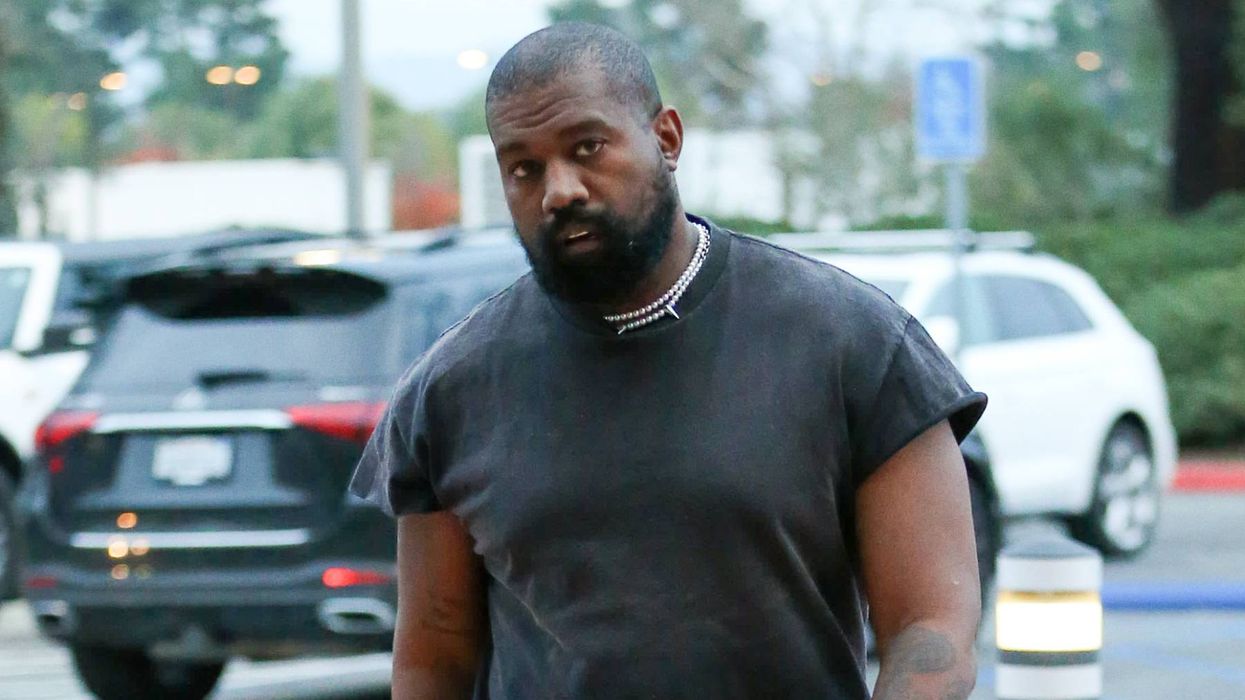As former President Donald Trump tries to distance himself from Project 2025, it’s becoming more clear how devastating it will be for our veterans.
The conservative personnel and policy program, intended to guide the next Republican administration, is gaining attention as the presidential campaign heats up. Despite Trump’s attempts to distance himself from its policy blueprint, he knows precisely what the project entails — and who helped put it together.
Many of Trump’s former allies and appointees are deeply embedded in Project 2025. Six of his ex-Cabinet secretaries, four former ambassadors, and numerous enforcers of his immigration policies contributed to the project’s 887-page “Mandate for Leadership,” which outlines far-right policy priorities for Trump to pursue in his second term.
Former senior Trump administration officials Russ Vought and John McEntee have both been involved with Project 2025, and are expected to serve in top roles if Trump wins again. Notable figures like former Trump chief of staff Mark Meadows and advisor Stephen Miller both lead organizations that are part of Project 2025. Additionally, lawyers involved in Trump’s impeachment and election disputes, such as Jay Sekulow, Cleta Mitchell, and John Eastman, are key players. In total there are nearly 240 individuals with ties to both Project 2025 and Trump. Key contributors include former U.S. Attorney Brett Tolman, who was pivotal in Trump’s criminal justice reform law, and other influential figures like Ben Carson, Christopher Miller, and John Ratcliffe.
Project 2025’s goals include disbanding federal agencies, privatizing others, and expanding presidential control over the executive branch. These proposals align closely with Trump’s official campaign plan, Agenda47, which was recently adopted as the Republican Party’s national platform.
One of the most troubling aspects of Project 2025 is its clear hostility towards LGBTQ and transgender individuals, including veterans. Trump’s administration has consistently targeted these communities, raising serious questions about his genuine support for all veterans.
The project proposes eliminating federal protections for sexual orientation and gender identity, and enforcing a “biblically based, social science-reinforced definition of marriage and family.” On education, it seeks to bar public education employees from using a name or pronoun different from what is listed on a student’s birth certificate without parental permission, directly impacting transgender youth and their families.
Additionally, Project 2025 calls for a 50 percent reduction in federal employees within a year and 75 percent within four years. It includes measures such as cutting federal jobs, disbanding agencies like the Department of Education and the Department of Homeland Security, and privatizing the Transportation Security Administration. These proposals aim to radically reshape the federal government, aligning with Trump’s agenda of reducing government size and influence.
Veterans make up roughly 30 percent of the federal workforce, with approximately 300,000 veterans currently employed by the federal government. These individuals, having served their country in the military, have chosen to continue their service in a civilian capacity. They bring unparalleled dedication, discipline, and unique skill sets often not found in the private sector. Many of these veterans, including a substantial number who are disabled, find employment in agencies that Project 2025 targets for elimination, such as the FBI and the Justice Department.
Many federal agencies are veteran-heavy workplaces, offering opportunities for those who have served to continue contributing to public service, national security, and justice. These agencies are integral to a healthy and functioning government. Their employees include many veterans who have transitioned from military service to civilian roles. Drastically cutting jobs in federal agencies would disproportionately affect veterans, many of whom rely on these positions not only for employment but also for a sense of purpose and community.
The ramifications of reducing the federal workforce extend beyond job losses; it would jeopardize the livelihoods of veterans and undermine the effectiveness of the government. Federal employees are crucial to the operation of various essential services, and the proposed reductions would severely limit the government’s ability to function.
During Trump’s first term, the dismantling of federal agencies like the Environmental Protection Agency and the Department of Education left many veterans in those agencies unemployed or with reduced roles. This proposal by Project 2025 to go even further is alarming, not just for its potential effects on the efficiency and efficacy of government operations, but for the impact it would have on one of the nation’s most revered groups: our veterans.
Cutting federal jobs amid economic recovery is not a decision to be taken lightly. There is a responsibility to consider the broader societal implications, beyond immediate political gains. Veterans, who have already sacrificed so much, should not bear the burden of hasty political decisions.
Trump and Republicans are pledging to “take care of our veterans” by ending ‘luxury housing’ and taxpayer benefits for undocumented immigrants, redirecting those savings to shelter and treat homeless veterans. However, states like New York are left to find their own ways to fund migrant support, raising doubts about whether any real savings would actually be available for veterans programs.
The Trump administration’s reforms to “expand” veterans’ health care choices are widely recognized within the veteran community as a push to privatize the Department of Veterans Affairs — an approach fiercely opposed by all major Veterans Service Organizations in the U.S. Trump also promises to ‘hold low performers at the VA accountable,’ but during his first term, more than 2,600 employees were fired, with only five being top officials. Most of those terminated were housekeepers, food service workers, and nursing assistants. This did little to reform the VA and instead caused staffing shortages, further denying veterans the care they need. Four years later, the VA is still struggling to catch up with staffing needs.
Specific recommendations in Project 2025 include eliminating concurrent eligibility for disability and retirement benefits, restricting disability coverage, closing low-priority VA medical care enrollment, and privatizing the Department of Defense’s TRICARE system. These measures aim to save billions but would substantially impact veterans’ benefits and services.
If these policies are enacted, veterans previously eligible for service-connected disabilities may see those benefits revised or taken away. The Project 2025 manual additionally criticizes the 1991 Agent Orange Act and the 2022 PACT Act, which aid veterans exposed to toxic substances, for overwhelming the VA’s ability to process claims and increasing spending.
As someone who worked on the 2022 PACT Act and met with sick and dying veterans, I couldn’t disagree more with Project 2025’s assessment. The removal or reduction of these expanded benefits would be detrimental to veterans who rely on these provisions for health and financial support, undermining the commitments made to those who have served their country.
Real solutions should prioritize retraining and better allocation of resources, rather than drastic cuts that disproportionately impact veterans. For a nation that prides itself on honoring its veterans, eliminating their jobs should never be considered a viable policy.
The push for such extreme measures under Project 2025, and their alignment with Trump’s policies, reflects a broader agenda that prioritizes political strategy over the welfare of those who have served our country. It is vital to scrutinize these proposals and consider their real-world impact on veterans and the functionality of our government. Thoughtful and measured approaches are essential to maintaining a robust and effective federal workforce while honoring commitments to veterans.
By dismantling key agencies and slashing federal jobs, Project 2025 threatens not only government efficiency but also the livelihoods of tens of thousands of veterans. These actions will have far-reaching consequences, weakening the nation’s administrative capabilities and betraying our veterans. We must ask ourselves what is more important: the livelihoods of our veterans and the health of our economy, or the desires of a few who seek to dismantle the government.
Michael Embrich is a veteran, former member of the Secretary of Veterans Affairs’ Advisory Committee on the Readjustment of Veterans, and former congressional staffer.












 Jean Jacket: Repull/Jewelry: Personal collection
Jean Jacket: Repull/Jewelry: Personal collection Hat: Xtinel/Dress shirt and vest: Raphael Viens/Jewelry: Personal Collection & So Stylé
Hat: Xtinel/Dress shirt and vest: Raphael Viens/Jewelry: Personal Collection & So Stylé  Dress: Helmer/Jewelry: Personal Collection
Dress: Helmer/Jewelry: Personal Collection  Jewelry: Personal Collection
Jewelry: Personal Collection  Dress: Helmer/Jewelry: Personal Collection
Dress: Helmer/Jewelry: Personal Collection 

 Catering Presented By The Food DudesPhoto by Snapdrg0n
Catering Presented By The Food DudesPhoto by Snapdrg0n Catering Presented By The Food DudesPhoto by Snapdrg0n
Catering Presented By The Food DudesPhoto by Snapdrg0n Catering Presented By The Food DudesPhoto by Snapdrg0n
Catering Presented By The Food DudesPhoto by Snapdrg0n
 Photographer: Raphaëlle Sohier / Executive production: Elizabeth Crisante & Amanda Dorenberg / Design: Alex Filipas / Post-production: Bryan Egan/ Headpiece: Tristan Réhel
Photographer: Raphaëlle Sohier / Executive production: Elizabeth Crisante & Amanda Dorenberg / Design: Alex Filipas / Post-production: Bryan Egan/ Headpiece: Tristan Réhel Photo: Raphaëlle Sohier
Photo: Raphaëlle Sohier Photo: Raphaëlle Sohier/ Photo production: Bryan Egan/ Blazer:
Photo: Raphaëlle Sohier/ Photo production: Bryan Egan/ Blazer:  Photo: Raphaëlle Sohier/ Blazer: Vivienne Westwood/ Skirt :
Photo: Raphaëlle Sohier/ Blazer: Vivienne Westwood/ Skirt : 

Project 2025 Would Be a Disaster for Veterans